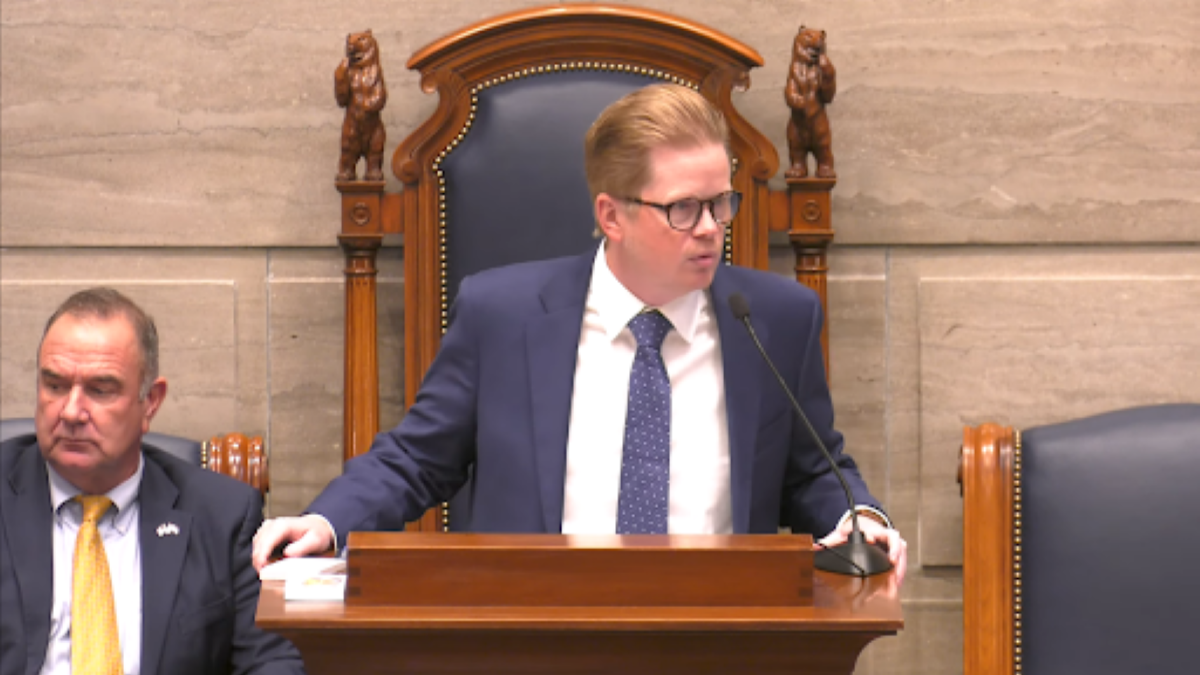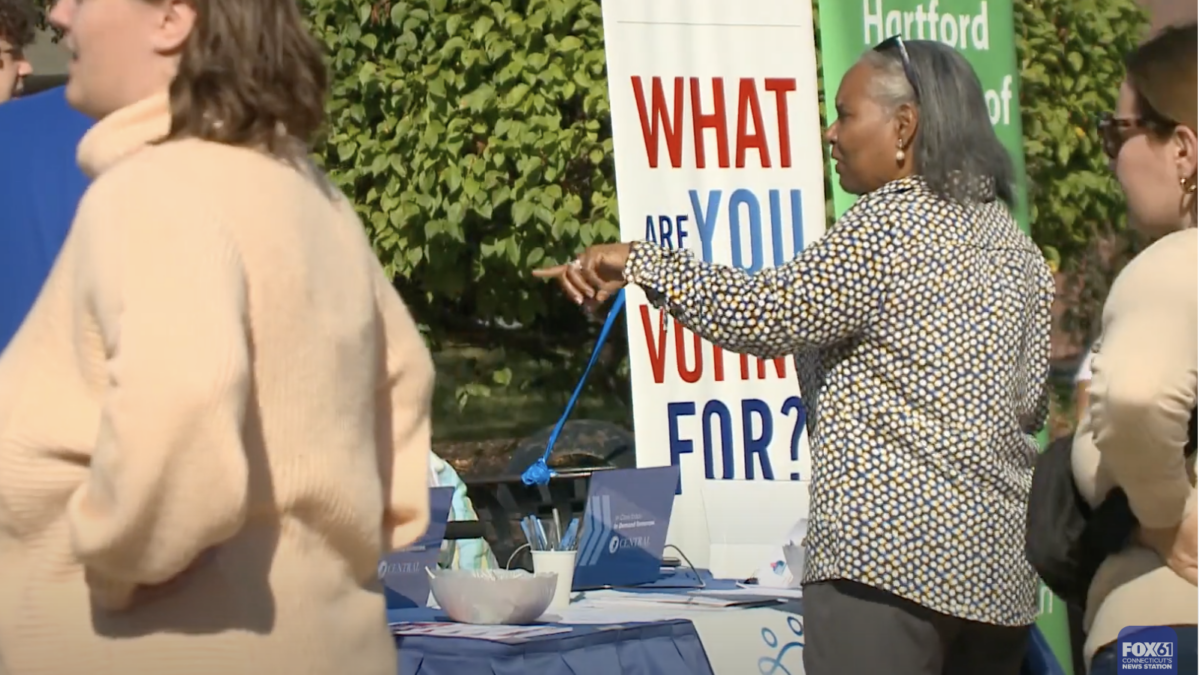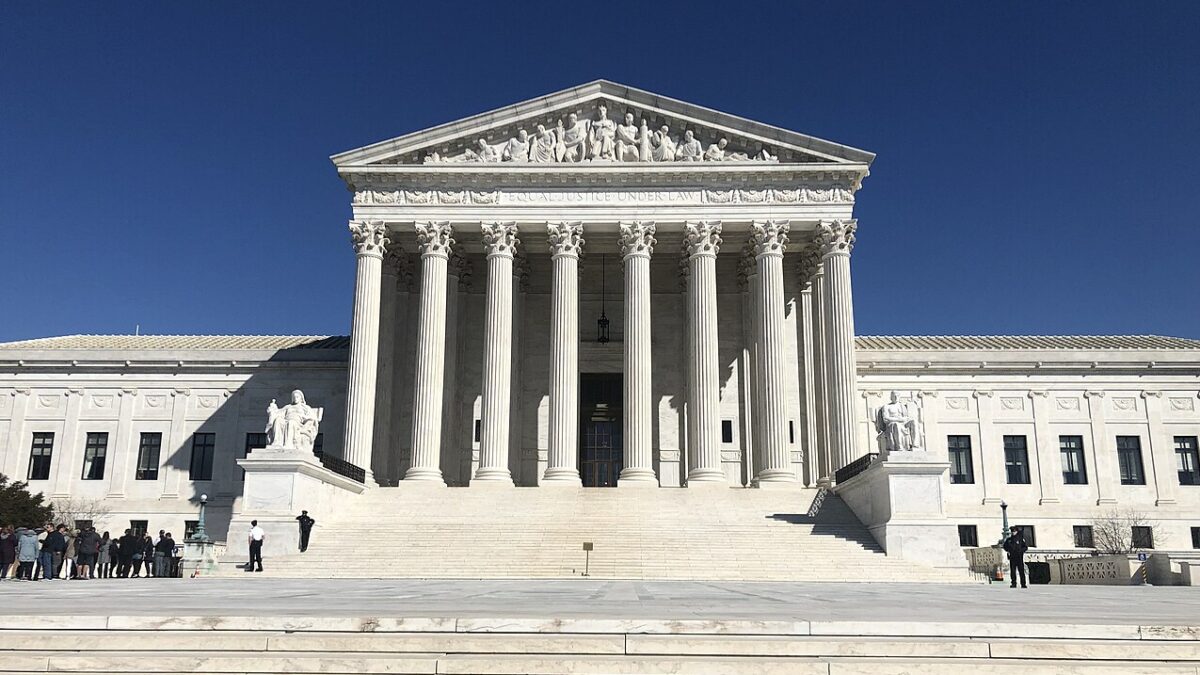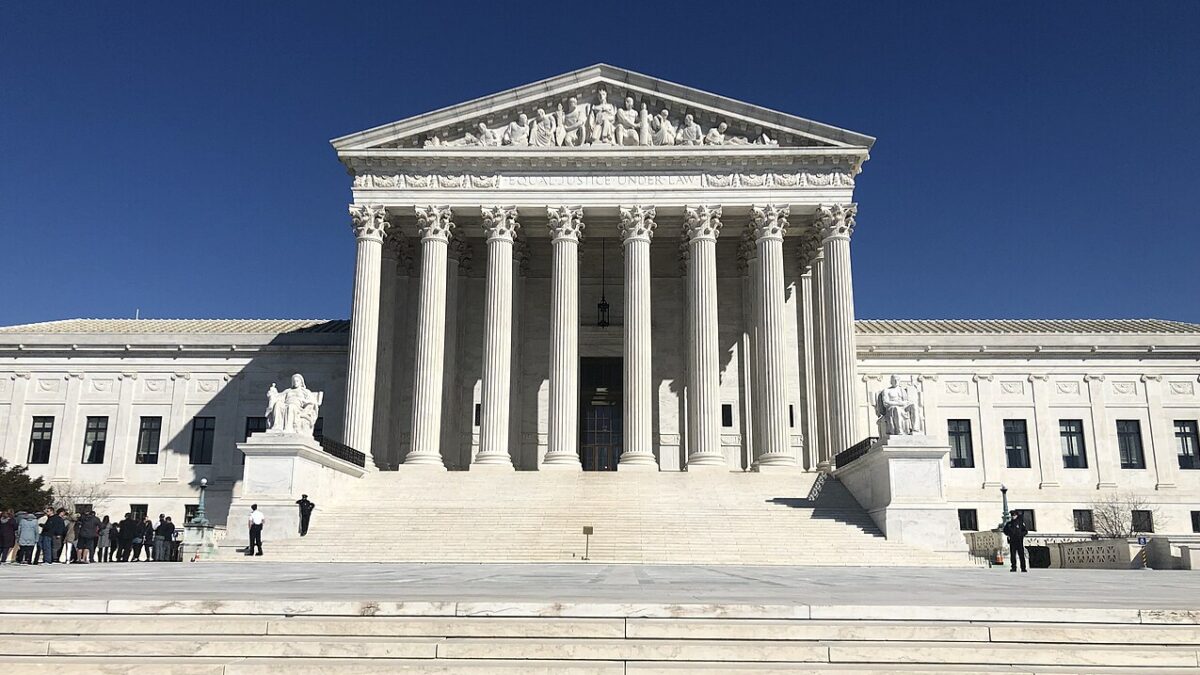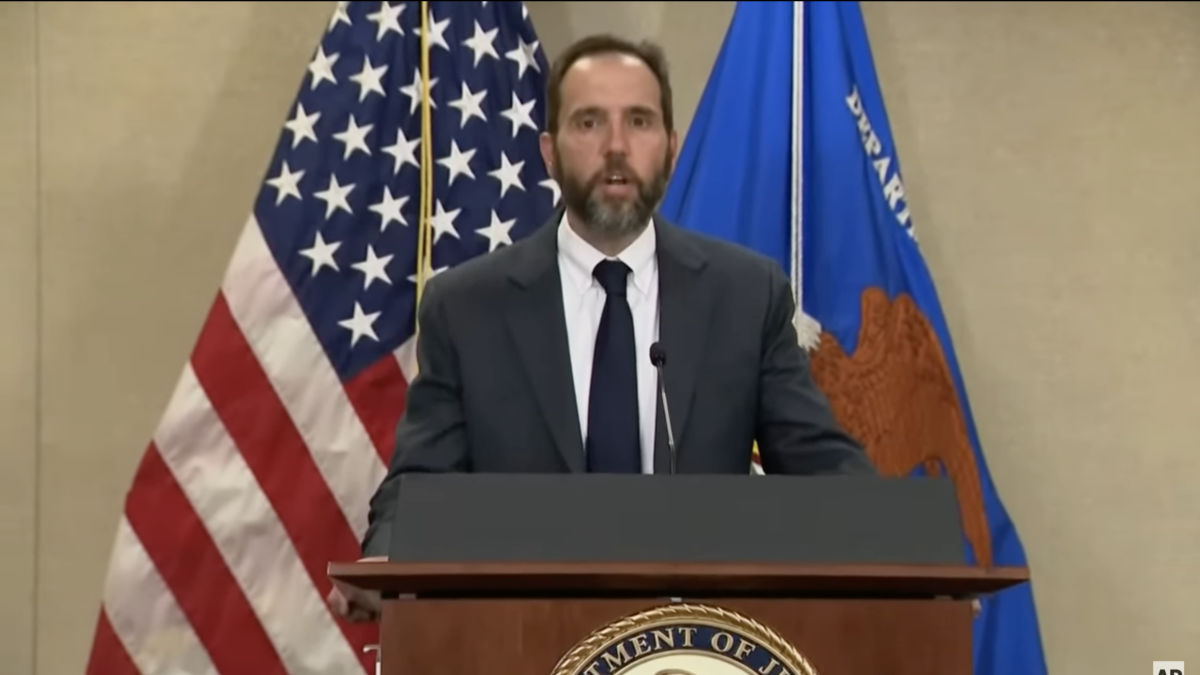GOP Sen. Rick Brattin was optimistic heading into the final week of Missouri’s 2024 legislative session. Following months of delays and back-and-forth with the House, the Republican-controlled Senate seemed poised to pass legislation (SJR 74) raising the threshold to amend the Missouri Constitution, and thus make it more difficult for Democrats to enshrine abortion into the state’s founding document.
But when the final days of the session arrived, the floor vote to pass initiative petition (IP) reform fell apart.
Despite having the votes necessary to stop a more than 50-hour filibuster from Senate Democrats and send SJR 74 to voters for approval, Senate GOP leadership abruptly adjourned for the rest of the year before getting the measure across the finish line. Republicans’ opportunity to make it harder for radical leftists to change the Missouri Constitution vanished in the blink of an eye.
The maneuver to kill SJR 74 was no accident, however, according to several GOP senators who spoke with The Federalist. What unfolded in the waning days of the 2024 session, they said, was a coordinated campaign orchestrated by Senate GOP leadership to prevent the constitutional amendment proposal from passing.
“The fix was completely in,” Brattin, the chair of the Missouri Freedom Caucus (MOFC), told The Federalist.
The Situation
Originally introduced in January, SJR 74 sought to raise the threshold for amending the Missouri Constitution via initiative petition by requiring the majority of voters in “more than half” of the state’s congressional districts to ratify any constitutional amendment proposal. The Show Me State’s founding document currently mandates that any amendment proposal voted on by Missourians must only receive a majority of support from the electorate to be written into the state’s constitution.
While SJR 74 was approved by the Senate in February, the upper chamber amended the measure to scrap a provision prohibiting noncitizens from voting on constitutional ballot measures. The amendment was introduced by Republican Sen. Mike Cierpiot, who did not respond to The Federalist’s previous request for comment on why he did so.
Over the next several months, SJR 74 was considered by the GOP-led House, which amended the measure to reinstate the noncitizen voting provision and add language barring foreign actors from funding and influencing ballot measure campaigns. This version was approved by the House on April 25 and sent back to the Senate for final passage.
The Establishment Strikes Back
While Senate leadership agreed to take up SJR 74 in early May after the MOFC orchestrated a 41-hour-long filibuster pressuring leadership to do so, the upper chamber didn’t consider the measure until the final week (May 13-17) of the 2024 session. This delay of the bill’s consideration allowed Senate Democrats to launch a filibuster of their own on May 13, which prevented the Senate from acting on the measure for the next two days.
Having predicted Democrats would deploy such a maneuver, GOP Sen. Ben Brown told The Federalist he was working behind the scenes in the final three weeks of the session gathering support for a previous question (PQ) motion, which would allow Republicans to end Democrats’ stall tactics. According to the Missouri Independent, a PQ “must be a written motion with signatures from 10 members” to initiate and requires support from 18 senators to pass.
(Republicans hold a 24-10 majority in the Missouri Senate).
Brown said he had 18 signatures for the PQ during the third to last week of the session but noticed in the following days that “every now and then [he] would lose somebody and have to go in and make that up somewhere else” to maintain the 18 senators required to pass it.
“We get to the final week, and first thing Monday, [May 13], we go to IP reform, but now I lost somebody else,” Brown said. “It was kind of a constant battle to make sure we maintain the number of people [we needed].”
Brown claimed he was designated by Majority Leader Cindy O’Laughlin to lead the PQ effort that same day, at which point 16 senators had purportedly committed to pass the motion. Brown said he “felt pretty confident that two [senators who] wouldn’t necessarily sign the PQ” would “very likely vote for it” if and when they were “put on the spot” to do so.
Unfortunately, the opportunity never came to fruition. After informing Senate leadership they possessed the 10 signatures necessary to raise a PQ motion, Brown and Brattin claimed that Republican Sen. Mary Elizabeth Coleman barged into Brown’s office on May 15 and demanded she be allowed to bring the PQ forward since she was SJR 74’s primary sponsor. Brown and Brattin said they had no problem with that, at which point Coleman, according to Brown, grabbed “papers, documents, [Brown’s] script, and everything off [his] desk and stormed off.”
Not long after that, Brown heard Coleman’s voice on the intercom and assumed she was presenting the PQ motion to the Senate. Upon arriving at the chamber floor, however, Brown discovered that Coleman had instead offered a substitute motion to send SJR 74 to conference with the House, a maneuver that would effectively kill any chances the measure would pass before the end of the session.
Senate records indicate Coleman initially moved for the Senate to adopt SJR 74, but withdrew the motion after Minority Floor Leader John Rizzo, a Democrat, moved for a conference. It was at this point Coleman withdrew her original motion and put forward the motion for a conference.
The House rejected Coleman’s motion and sent it back to the Senate the following day, with Speaker Dean Plocher reportedly indicating that Senate President Pro Tem Caleb Rowden, a Republican, “would not accept the legislation back without the removal of” the provisions prohibiting noncitizen interference in Missouri elections. Rowden previously supported the aforementioned Cierpiot amendment scrapping such provisions from the original version of the bill.
Despite receiving SJR 74 back from the House, Senate leadership refused to take up the measure and ended the 2024 session early on May 17 — the last day on Missouri’s 2024 legislative calendar.
Brattin and Brown laid SJR 74’s defeat at the feet of Rowden, who has resisted efforts to pass IP reform since the 2024 session began. Brown claimed that while gathering signatures for the PQ motion, he was “warned by several people that there were some [senators] working against [him], and [Rowden’s] name was one that was mentioned.” The Republican senator said his experience working with O’Laughlin was much more positive, remarking how the majority leader was “actually helpful in trying to whip votes and apply pressure to get people to come on board.”
Brattin similarly accused Rowden of working “behind the scenes” to kill SJR 74. He also claimed Coleman’s motion to move SJR 74 to conference made it “apparent” why leadership made her the bill’s sponsor.
“We kind of suspected that there was something not right with why [leadership was] so adamant about having [her] be the handler of that,” Brattin said. “And it was really made apparent there towards the very end why that was the case.”
Rowden and Coleman did not respond to The Federalist’s request for comment.
What This Means
The consequences stemming from the Missouri Senate’s failure to pass SJR 74 and send it to voters for approval this August cannot be overstated.
The measure’s death makes it much easier for left-wing activists funded by out-of-state mega-donors to enshrine radical policies such as unlimited abortion into the Missouri Constitution. In fact, Democrats are currently gathering signatures to place a constitutional amendment proposal on the state’s November ballot that would do exactly that.
[READ: Abortion Radicals Will Expand Their Schemes From Ohio To Your State. Here’s How To Be Ready]
By requiring “more than half” of the state’s congressional districts to ratify any constitutional amendment proposal, SJR 74 would have protected Missourians from the tyranny of the majority. Leftist groups hoping to use their dark money to squeeze votes from Democrat-friendly, high population centers such as St. Louis would be forced to expand their efforts to rural areas less likely to support their extreme policies.
With SJR 74 defeated, Democrats don’t have to worry about overcoming that obstacle in Missouri.
“The initiative petition process is ripe for abuse, and we have a target on our back for these out-of-state interests pouring millions of dollars into our state [who are trying to] essentially purchase [our] constitution,” Brown said. It’s “our state’s most sacred document, and we have a constitutional duty to protect that.”
